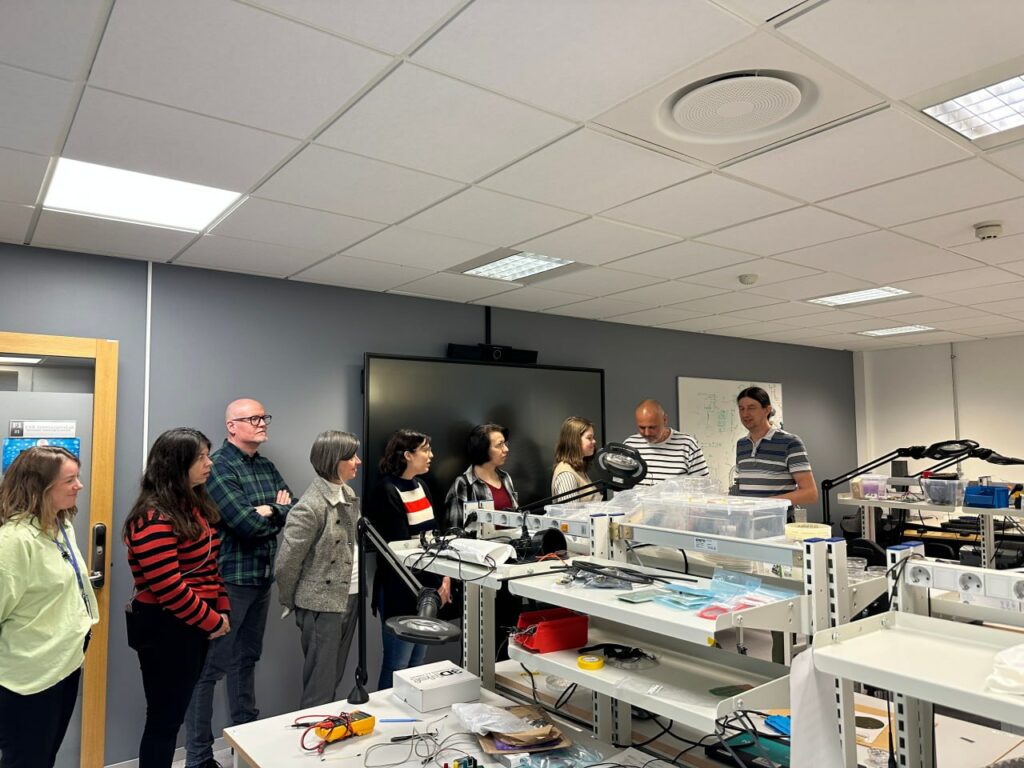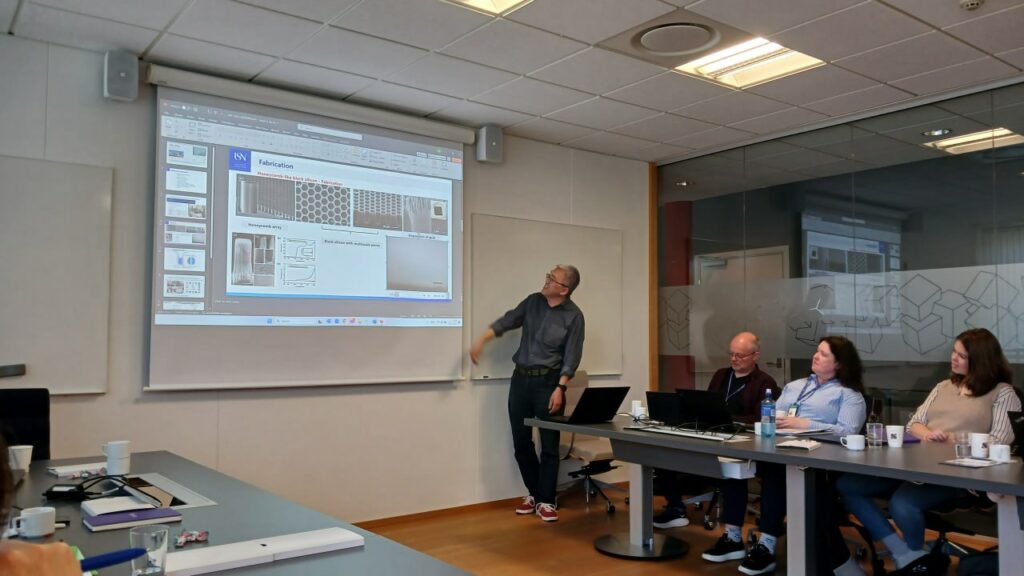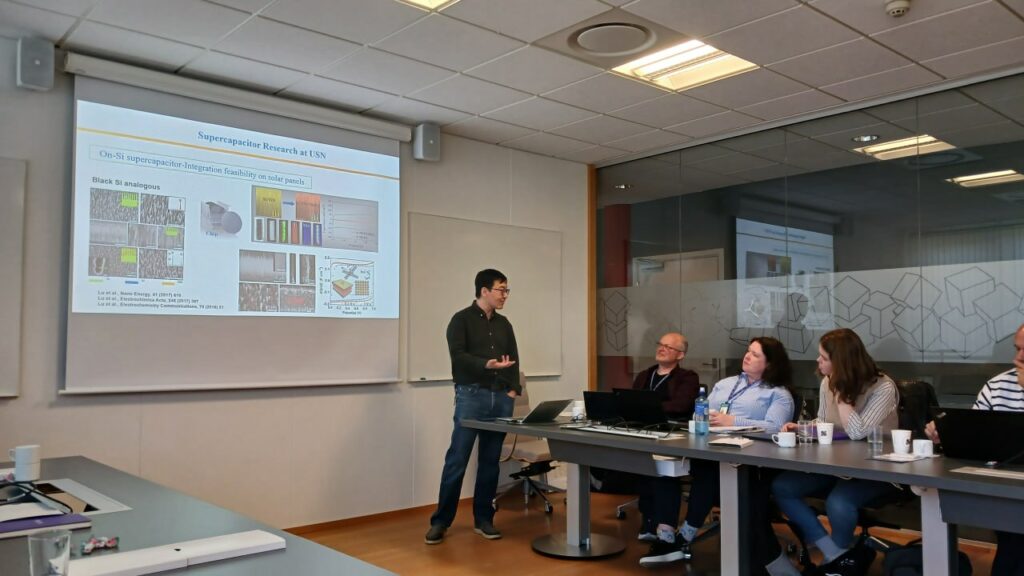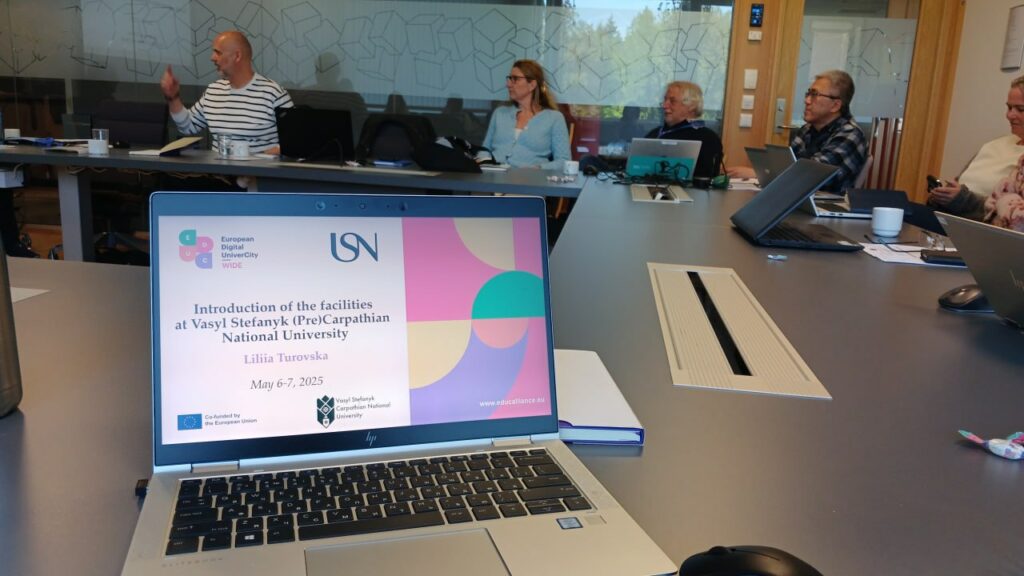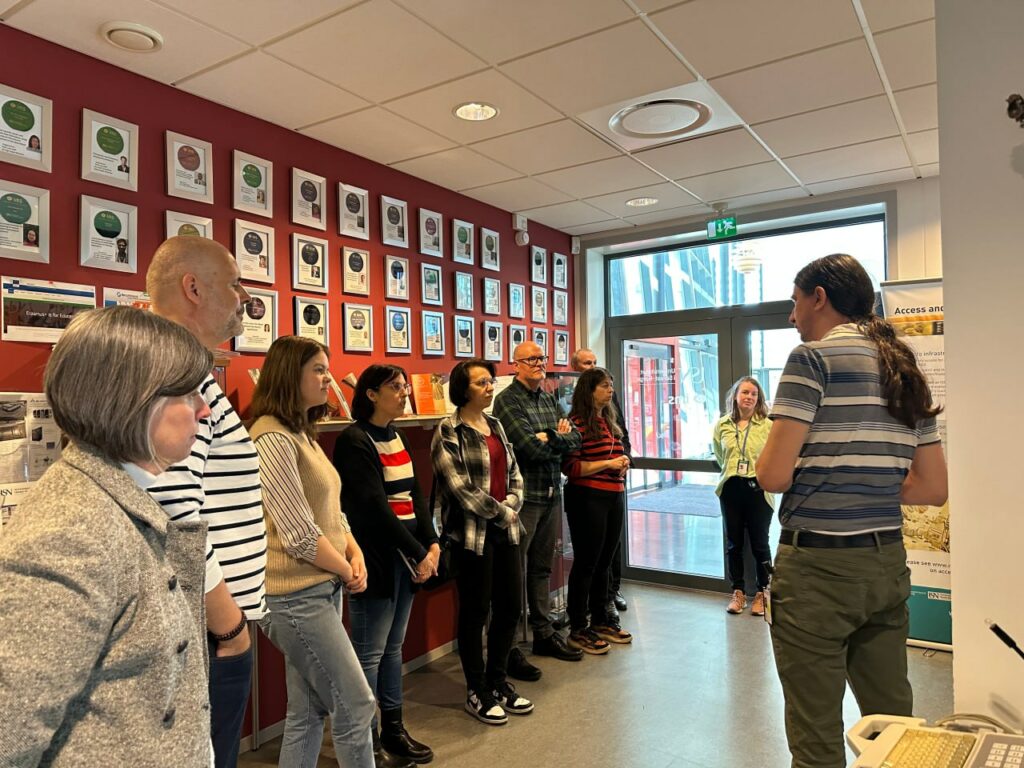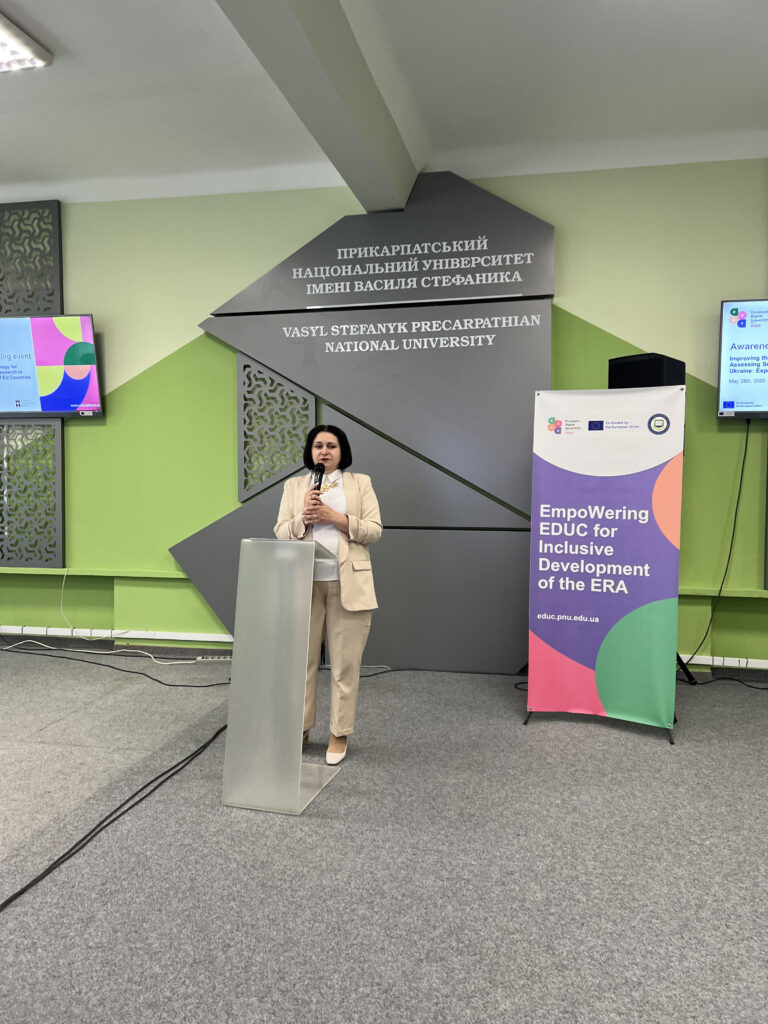
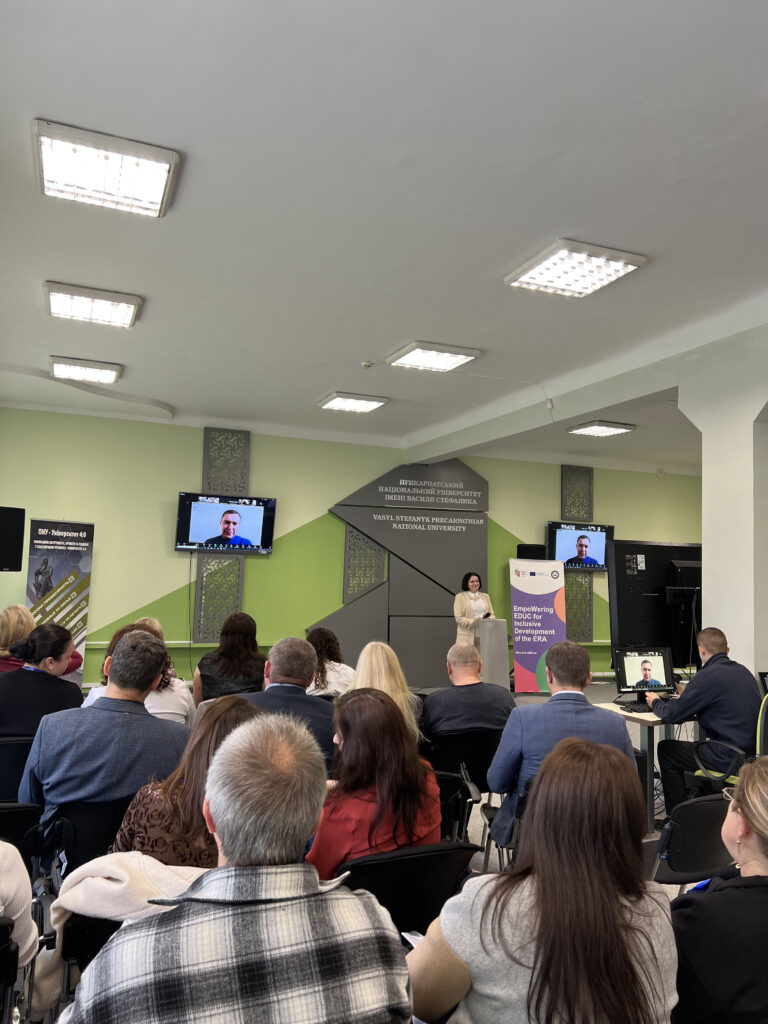
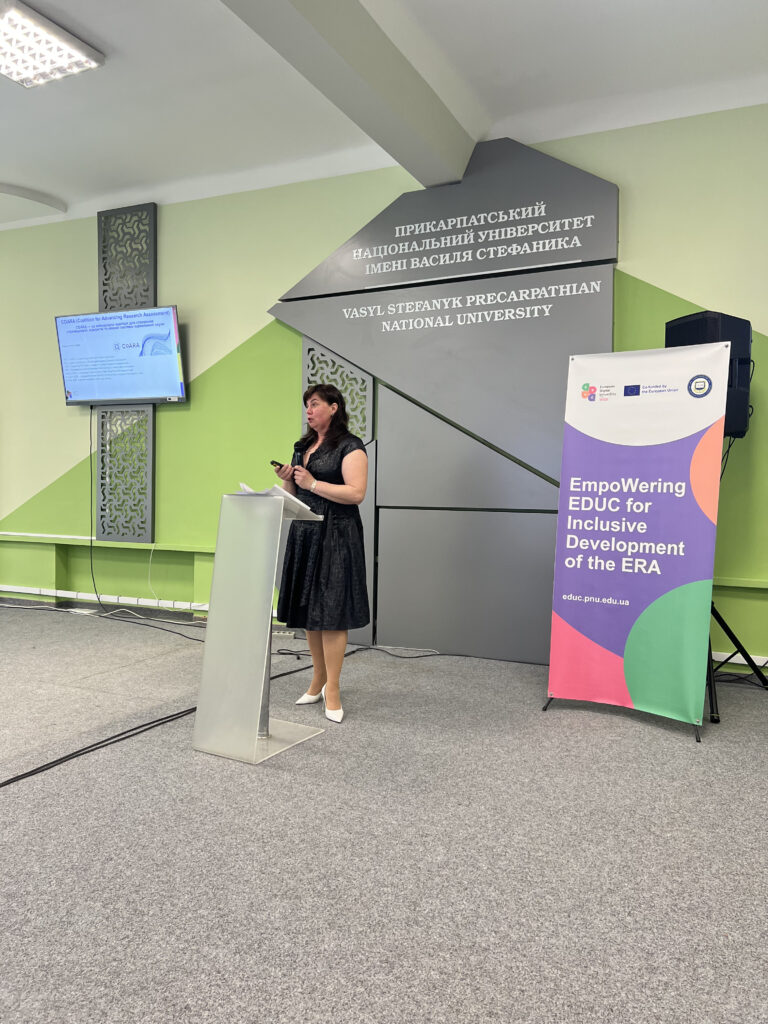
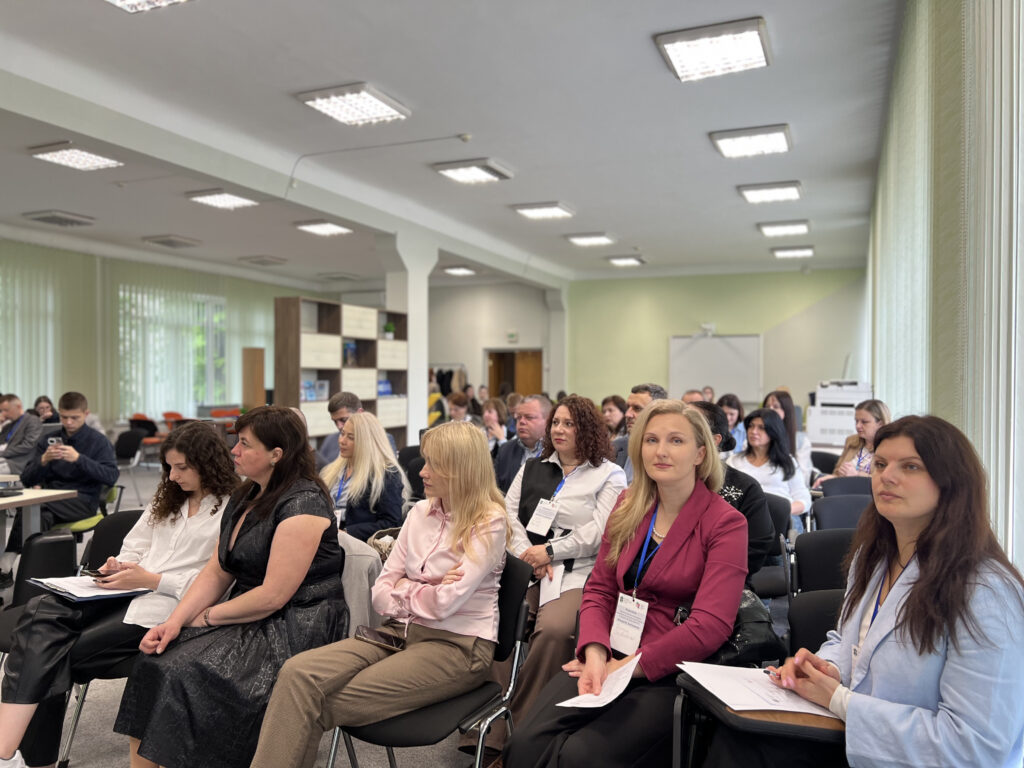
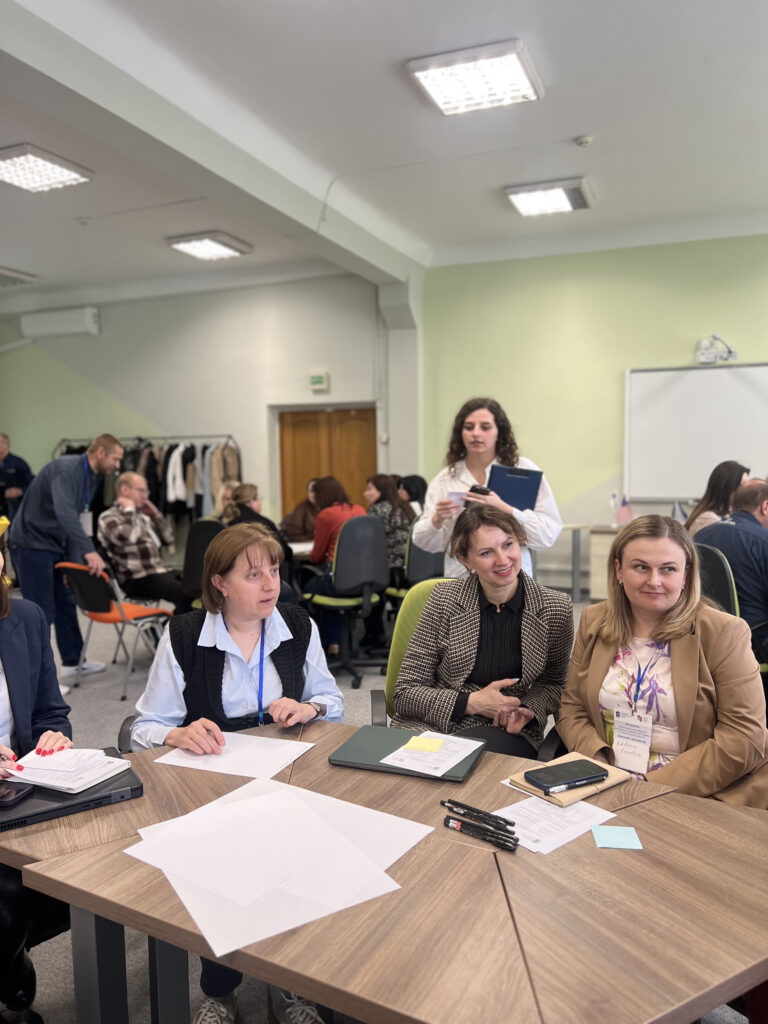
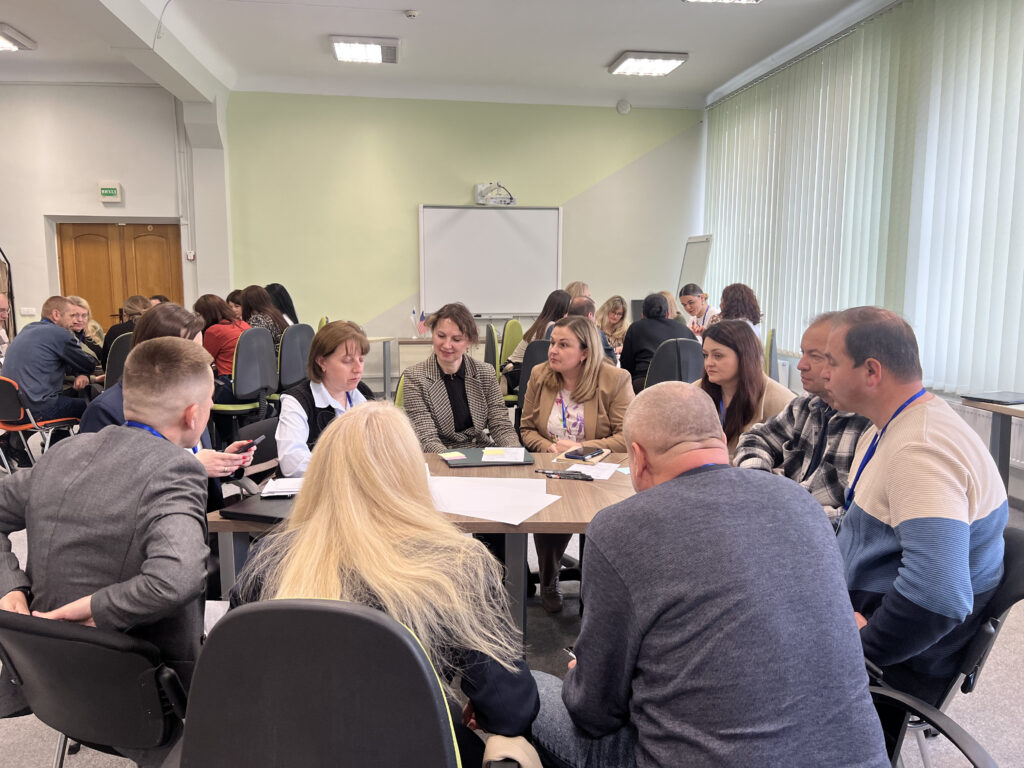
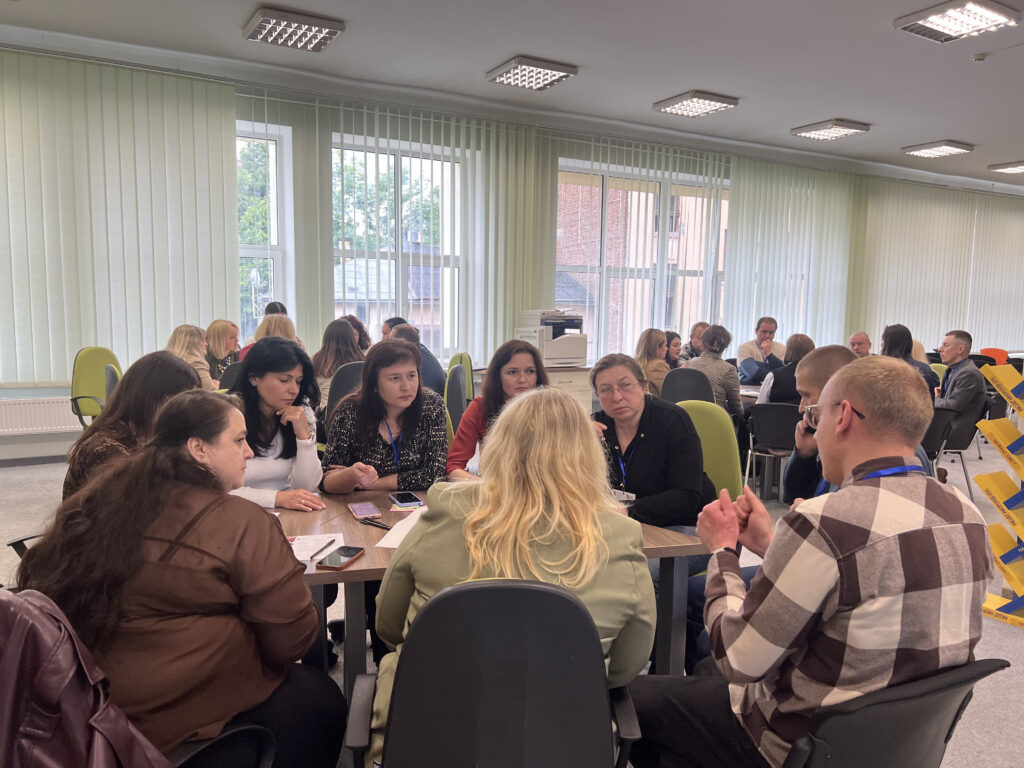
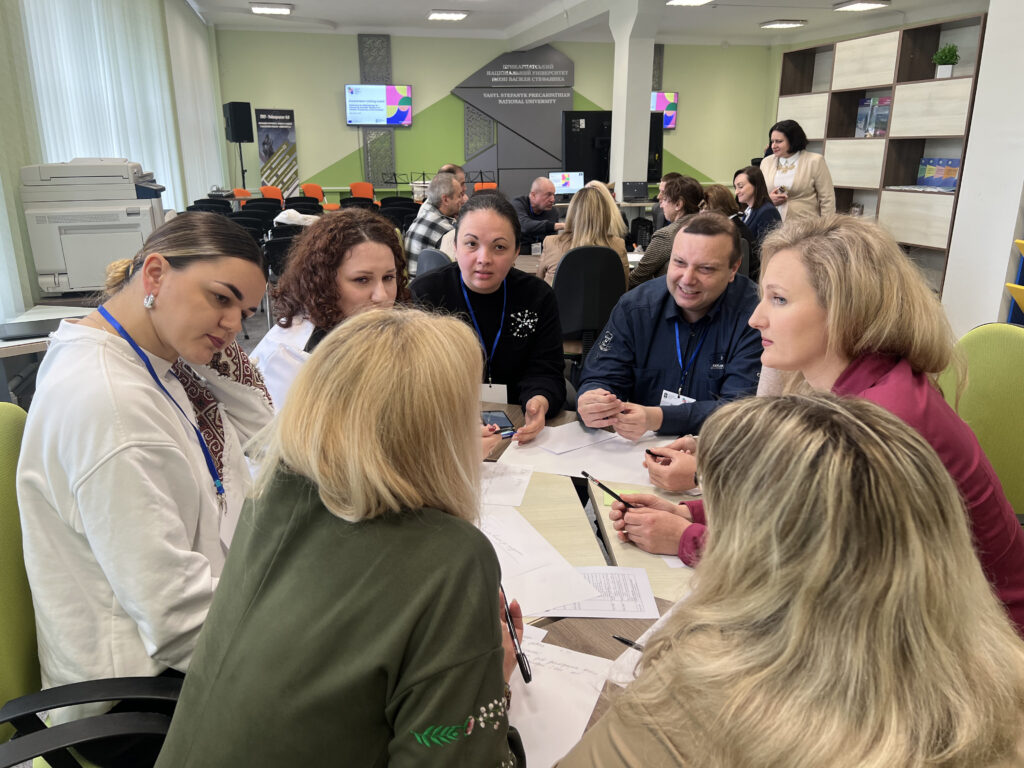
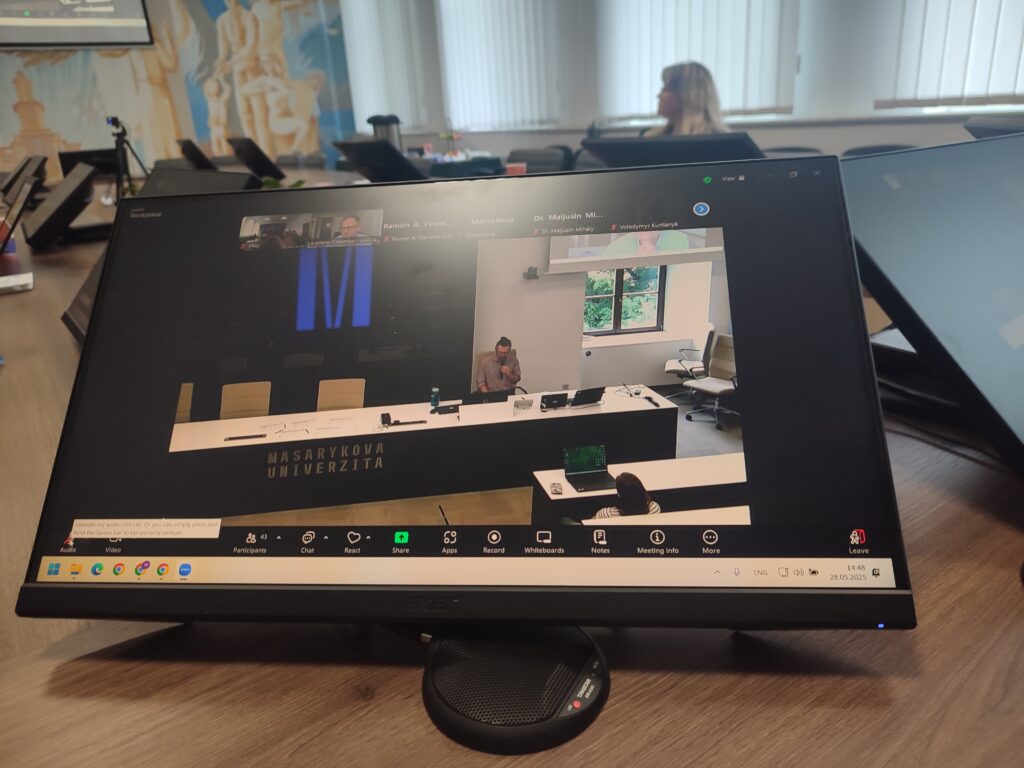
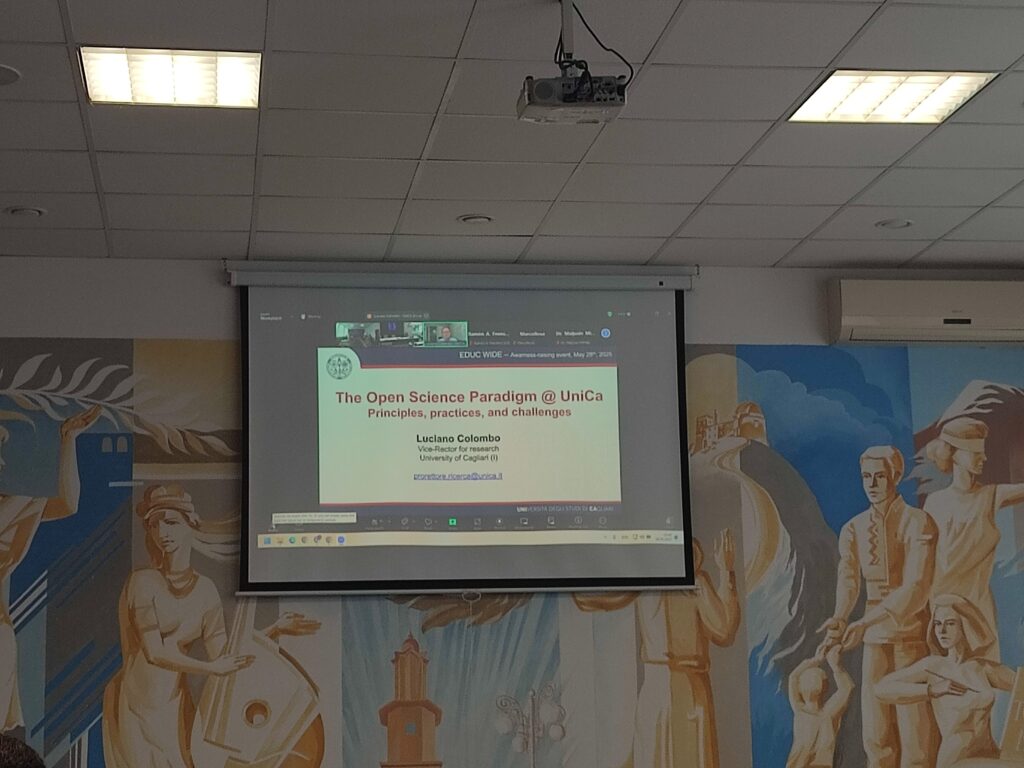










Between May 19 and 23, 2025, staff members of Vasyl Stefanyk Precarpathian (Carpathian) National University participated in the International Staff Week program hosted by the University of Rennes (Université de Rennes, France) within the framework of the European Digital UniverCity (EDUC) alliance.
The event brought together around 50 representatives from universities in Poland, Hungary, the Czech Republic, Germany, Norway, the United Kingdom, Canada, Italy, Spain, Japan, Georgia, and other countries. The participants from Carpathian University included: Tetiana Solodzhuk – Head of the Project Management Department; Tetiana Korniienko – Head of the Department of Document Management and Record Keeping; and Anastasiia Hrytsak – Leading Specialist at the International Relations Office.
The program was structured around three main tracks: Finances, Libraries and Open Science, and International Relations. Participants attended sessions, workshops, and visits to the University of Rennes’ departments. The Finances track covered EU policies, funding, and sustainable approaches to resource and property management. Libraries and Open Science addressed open access, data sharing, infrastructure, copyright, and academic integrity. International Relations focused on internationalization, academic mobility, foreign student recruitment, and models of managing international activities.
Participation in the International Staff Week will contribute to the development of our university’s international cooperation, the implementation of European open science practices, improved financial management efficiency, and the integration of Vasyl Stefanyk Precarpathian (Carpathian) National University into the European Research Area.
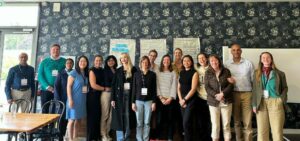
On 16 May 2025, the international workshop “Open Science and FAIR: Global strategies for accessibility, interoperability and information security”. The event was held in a hybrid format. The morning session in English was open to all participants, and the afternoon session was held in Ukrainian for representatives of the Ukrainian scientific community.
The workshop was held within the framework of the international project EDUC-WIDE (‘Empowering EDUC for the inclusive development of the European Research Area’) as part of Work Package 1 ‘Open Science: Analysis and Recommendations’.
The aim of the event is to facilitate the integration of Precarpathian University into the European Research Area (ERA) and to implement the principles of open science in the university’s activities. The EDUC-WIDE project, coordinated by the Acting Rector of Vasyl Stefanyk Precarpathian National University, Ihor Tsependa, is supported by the EU’s Horizon Europe programme and aims to strengthen scientific cooperation between the universities of the EDUC alliance and integrate Ukraine into the European scientific community. In particular, one of the project’s objectives is to introduce the principles of open science into the research processes and infrastructure of partner universities, which was the key topic of the workshop.
The participants were welcomed by:
– Valentyna Yakubiv, First Vice-Rector of Vasyl Stefanyk Precarpathian National University
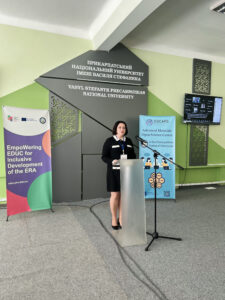
– Volodymyr Pavlikov – Chairman of the Council of Vice-Rectors for Research of Ukrainian Higher Education Institutions
Among the speakers of the event:
– Tetiana Yaroshenko – Deputy Director for Scientific Work and International Cooperation of the State Scientific and Technical Library of Ukraine
– Lyubomyr Nykyruy – Candidate of Physical and Mathematical Sciences, Head of the Department of Physics and Astronomy of the PNU
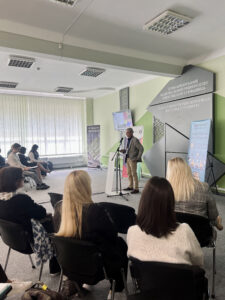
– Alžběta Karolyiová – Open Science Data Analyst, Masaryk University, Czech Republic
– Herman Strom – Research Support Coordinator, University of South-Eastern Norway
– Volodymyr Kotsiubynskyi – Professor, Project Manager, PNU-OpenLab
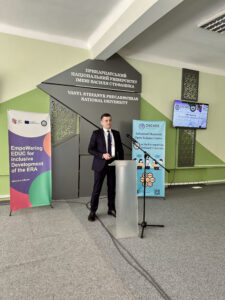
– Tetiana Korniienko – Junior Researcher, EDUC-WIDE project (PNU)
– Roman Dzumedzei – Director of the PNU Scientific Library
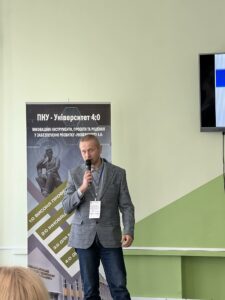
As part of the English-language session, speakers from the Czech Republic, Norway, and Ukraine discussed global approaches to implementing the principles of open science, in particular in the field of scientific journals, open data, and digital support for researchers. The Ukrainian part of the programme was dedicated to the implementation of open science in the PNU, policy-making, institutional roadmap, FAIR data, and the work of libraries.
The event contributed to the development of practical recommendations for the university, which will be taken into account when developing an open science policy and implementing infrastructures to support open research. The university will continue to actively integrate into the European Research Area, cooperating with the universities of the EDUC alliance and other international partners.
The programme of the event is available here:
https://educ.pnu.edu.ua/wp-content/uploads/sites/190/2025/05/rrogram_os_16.05.2025.docx.pdf
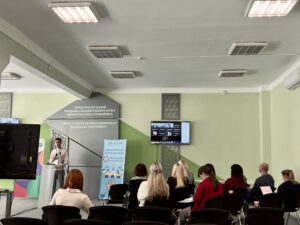
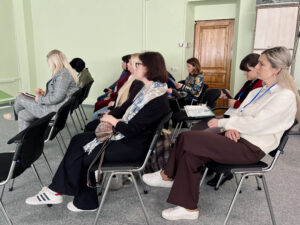
University of Pécs Organised by the EDUC-WIDE Consortium On 5–6 May, Ihor Yurkevych, an assistant at the Department of Biochemistry and Biotechnology, took part in the Genomics and Bioinformatics Workshop held at the Szentágothai János Research Centre, University of Pécs (Hungary). The event was organised under the auspices of the EDUC-WIDE consortium.
In addition to the representative from our university, the workshop gathered scientists from the University of Cagliari (Italy), Masaryk University (Czech Republic), the University of South-Eastern Norway (Norway), and the University of Pécs (Hungary).
The workshop programme covered a wide range of topics in the field of bioinformatics. Participants presented their institutions, research skills and achievements, and outlined areas of interest for future collaboration. Key discussions included roles and responsibilities in genomics laboratories, and the use of Laboratory Information Management Systems (LIMS) for sample and project management. The first day concluded with a visit to the Hungarian Centre for Genomics and Bioinformatics, where participants learned about the latest technologies in the field.
The second day focused on operational challenges, data protection and security, staff exchange programmes, the creation of a thematic cooperation network in genomics and bioinformatics, as well as the services and revenue models of commercial genomics institutions. Representatives from the University of Pécs presented the PRECISEMED project, which focuses on genomics and biostatistics.
The event emphasised interactive, hands-on workshops, knowledge-sharing sessions, and networking opportunities aimed at addressing shared challenges, exploring innovative technologies, improving operational practices, and fostering collaboration in both research and clinical applications.
The workshop and travel expenses of participants were funded by a grant from the EDUC-WIDE consortium, which supports collaboration among research core facilities of member universities through its Knowledge Exchange Scheme.
Liliia Turovska, Associate Professor of the Department of Management and Business Administration at Vasyl Stefanyk Carpathian National University participated in the Knowledge
Exchange Scheme (KES) Workshop for Micro- and Nanotechnology, hosted by the Department of Microsystems at the University of South-Eastern Norway (USN), on May 6–7, 2025. This workshop was part of the EDUC-WIDE project funded by the Horizon Europe programme.
The event gathered representatives from Jaume I University (Spain), University of Cagliari (Italy), Masaryk University (Czech Republic), and Vasyl Stefanyk Carpathian National University
(Ukraine) to foster collaboration and knowledge sharing in nanotechnology research and infrastructure development.
During the workshop, Liliia Turovska presented the PNU-NanoLab and the University research infrastructure, highlighting its capabilities in nanomaterials science, energy, and biomedical
applications. She contributed to discussions on:
– Safe handling of nanomaterials, sharing University’s practices and comparing them
with protocols used at USN and partner universities.
– Characterization techniques, with an exchange of tools, methods, and best approaches across institutions.
– Opportunities for international cooperation and joint research initiatives.
The participants toured USN’s state-of-the-art micro- and nanofabrication laboratories (a node of NorFab), and engaged in fruitful sessions exploring potential future research collaborations.
This visit strengthens University’s integration into the European Research Area (ERA) and supports the internationalization of our university’s research and innovation ecosystem.
